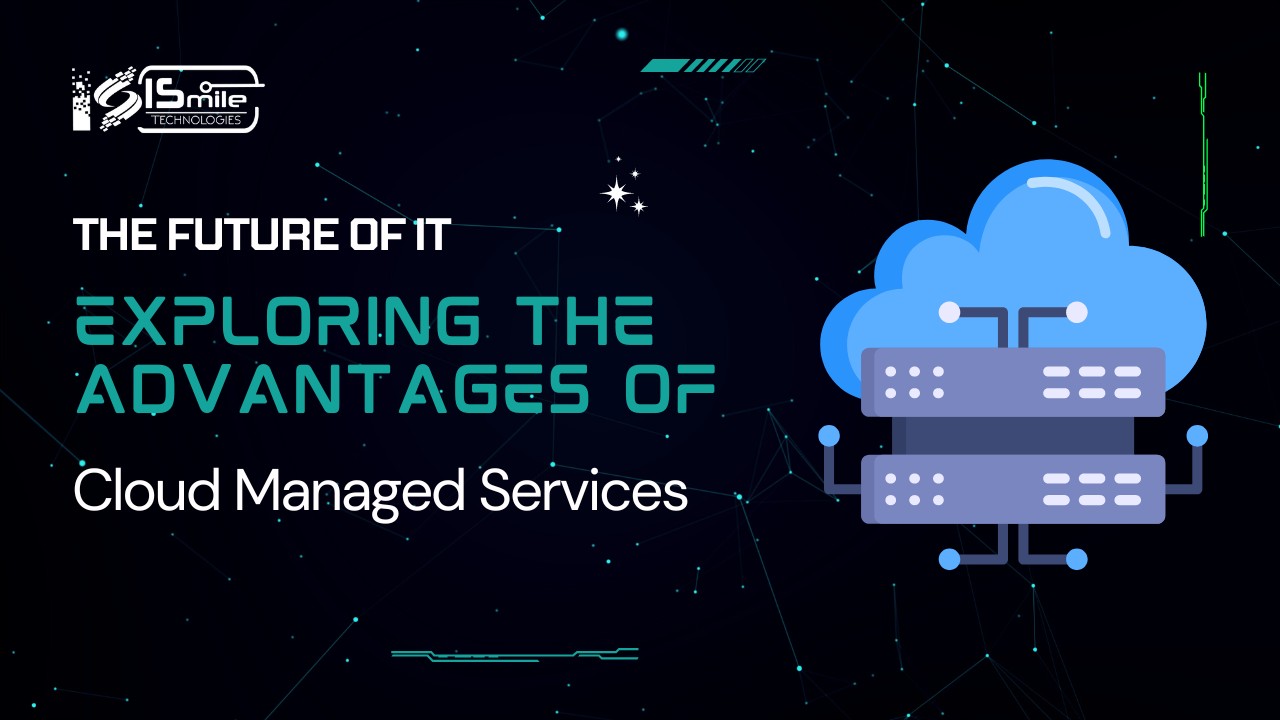The rapid advancement of technology has revolutionized the way businesses operate, and one of the most significant developments is the advent of cloud computing. Cloud managed services, in particular, have emerged as a vital component of the future of IT. In this article, we will delve into the advantages of cloud managed services and their impact on businesses across various industries.
What Are Cloud Managed Services?
Cloud managed services refer to the outsourcing of IT infrastructure and support to a third-party provider who takes care of managing and monitoring cloud-based systems. These services encompass a wide range of offerings, including infrastructure management, application management, security services, data backup and recovery, and more. By leveraging cloud managed services, businesses can offload the burden of managing their IT environment, allowing them to focus on their core competencies and strategic initiatives.
Benefits of Cloud Managed Services
1. Enhanced Security
With the increasing prevalence of cyber threats, ensuring robust security measures is a top priority for businesses. Cloud managed services provide advanced security protocols and constant monitoring to protect data and applications against potential breaches. Expert security teams proactively detect and respond to threats, minimizing the risk of data loss and unauthorized access.
2. Scalability and Flexibility
Cloud managed services offer unparalleled scalability, allowing businesses to easily adjust their IT resources based on demand. Whether there is a sudden surge in traffic or the need to scale down during quieter periods, cloud technology provides the necessary flexibility to accommodate fluctuating requirements. This scalability enables businesses to optimize resource allocation, improve performance, and reduce costs.
3. Cost Efficiency
By adopting cloud managed services, businesses can eliminate the need for extensive on-premises infrastructure and the associated capital expenditure. Instead, they can leverage a pay-as-you-go model, paying only for the resources they consume. This cost-efficient approach eliminates the need for upfront investments and allows businesses to allocate their budgets strategically, investing in growth initiatives rather than infrastructure maintenance.
4. Focus on Core Business
Outsourcing IT management to a cloud managed services provider allows businesses to redirect their internal resources towards core business functions and strategic objectives. By offloading time-consuming IT tasks, such as maintenance, monitoring, and troubleshooting, organizations can enhance their productivity and focus on innovation, customer satisfaction, and revenue generation.
5. Proactive Monitoring and Support
Cloud managed services providers offer proactive monitoring and support to ensure the smooth operation of IT infrastructure. With constant monitoring, potential issues are identified and resolved before they escalate, minimizing downtime and ensuring maximum system availability. Additionally, businesses benefit from 24/7 technical support, enabling rapid troubleshooting and issue resolution.
6. Disaster Recovery
Data loss can have severe consequences for businesses, including financial losses and reputational damage. Cloud managed services provide robust disaster recovery solutions, including automated backups, data replication, and failover mechanisms. In the event of an unforeseen incident, businesses can quickly restore their systems and recover their data, minimizing downtime and maintaining business continuity.
7. Collaboration and Remote Work
Cloud managed services facilitate seamless collaboration and remote work capabilities. With cloud-based applications and secure access, employees can work from anywhere, fostering productivity and flexibility. Real-time collaboration tools enable teams to work together on projects, share documents, and communicate effectively, regardless of their physical location.
Cloud Managed Services vs. Traditional IT
Cloud managed services represent a paradigm shift from traditional IT infrastructure management. While traditional IT requires significant upfront investments in hardware, software licenses, and maintenance, cloud managed services offer a more agile and cost-effective alternative. Traditional IT often involves complex and time-consuming processes for system upgrades and maintenance, whereas cloud managed services provide automated updates, ensuring businesses benefit from the latest technology advancements.
Considerations when Choosing a Cloud Managed Services Provider
When selecting a cloud managed services provider, businesses should consider several factors. These include the provider’s expertise and experience, security measures, service level agreements (SLAs), scalability options, pricing models, and customer support. A thorough evaluation of these aspects will help businesses make an informed decision and choose a provider that aligns with their specific requirements and growth plans.
Need help on maintaining Azure Security Center Secure Score of Clients?
Our experts can help you on all kinds of works on Azure Security Center.
Conclusion
The future of IT lies in the adoption of cloud managed services. With enhanced security, scalability, cost efficiency, and the ability to focus on core business functions, businesses across industries can unlock their full potential. By partnering with a reliable cloud managed services provider, organizations can harness the power of cloud technology and position themselves for success in the ever-evolving digital landscape.








